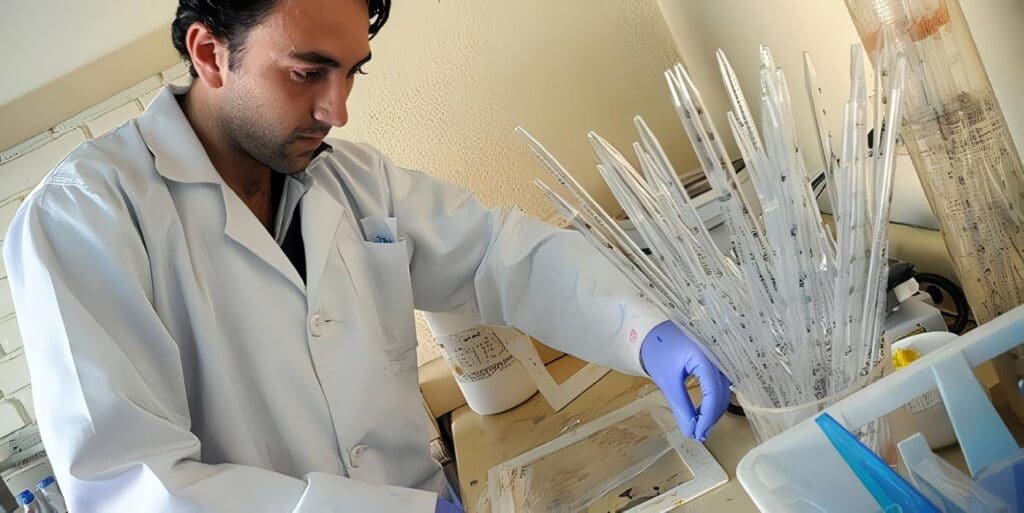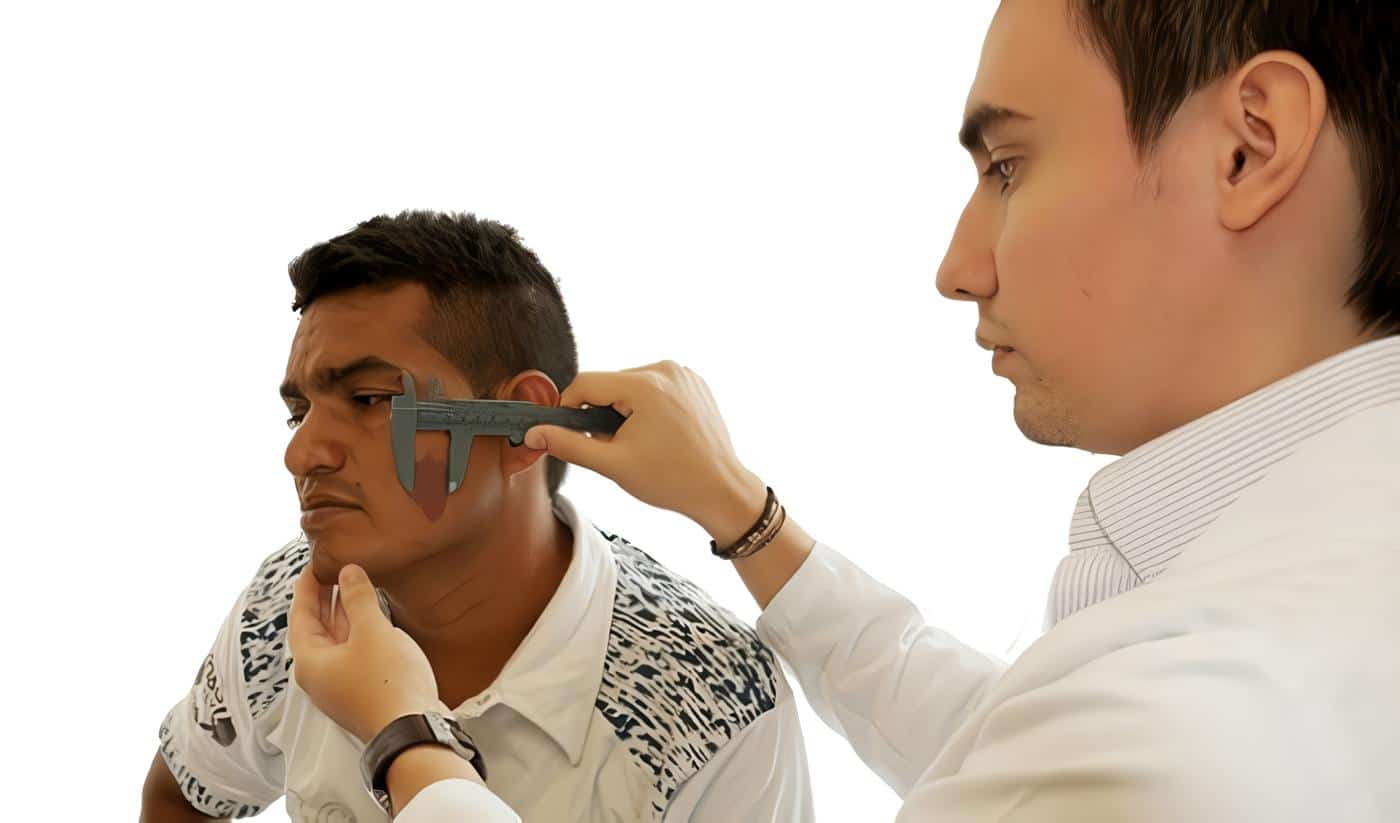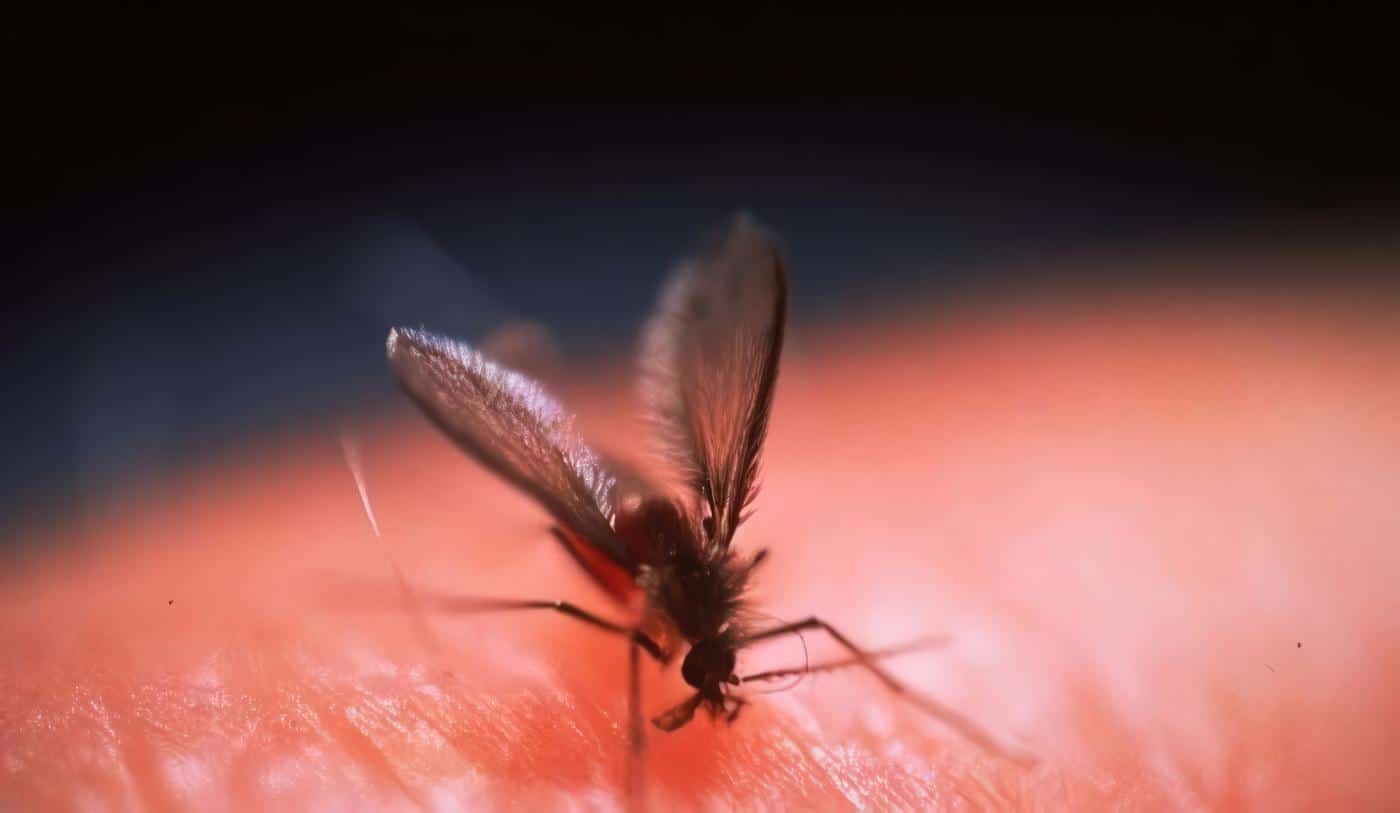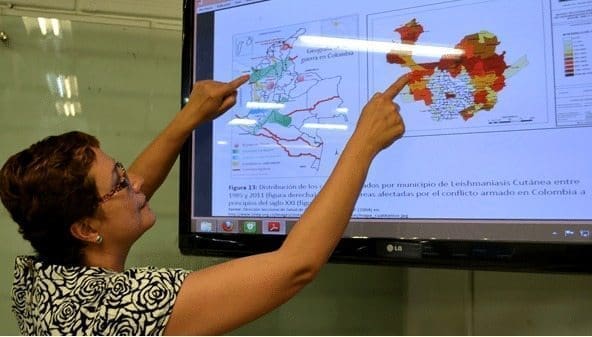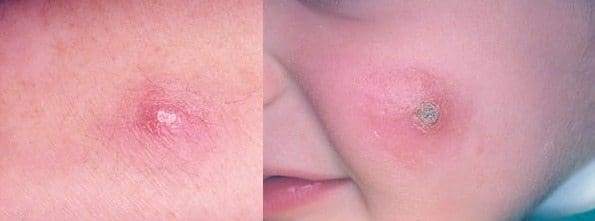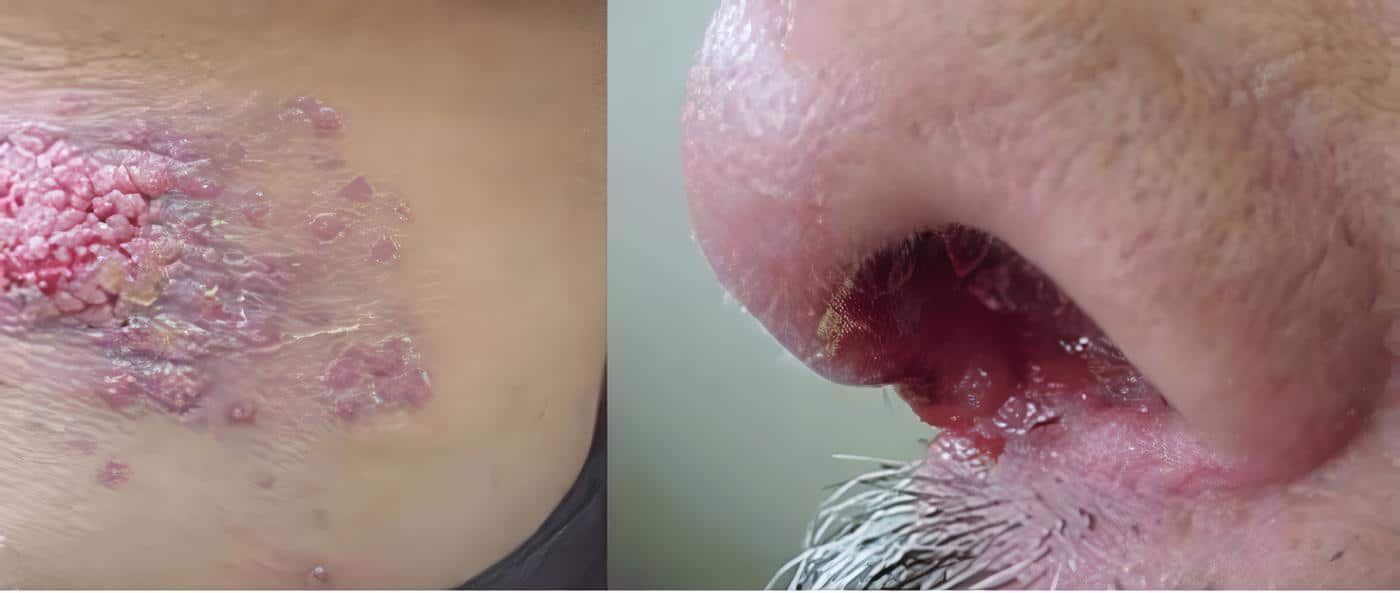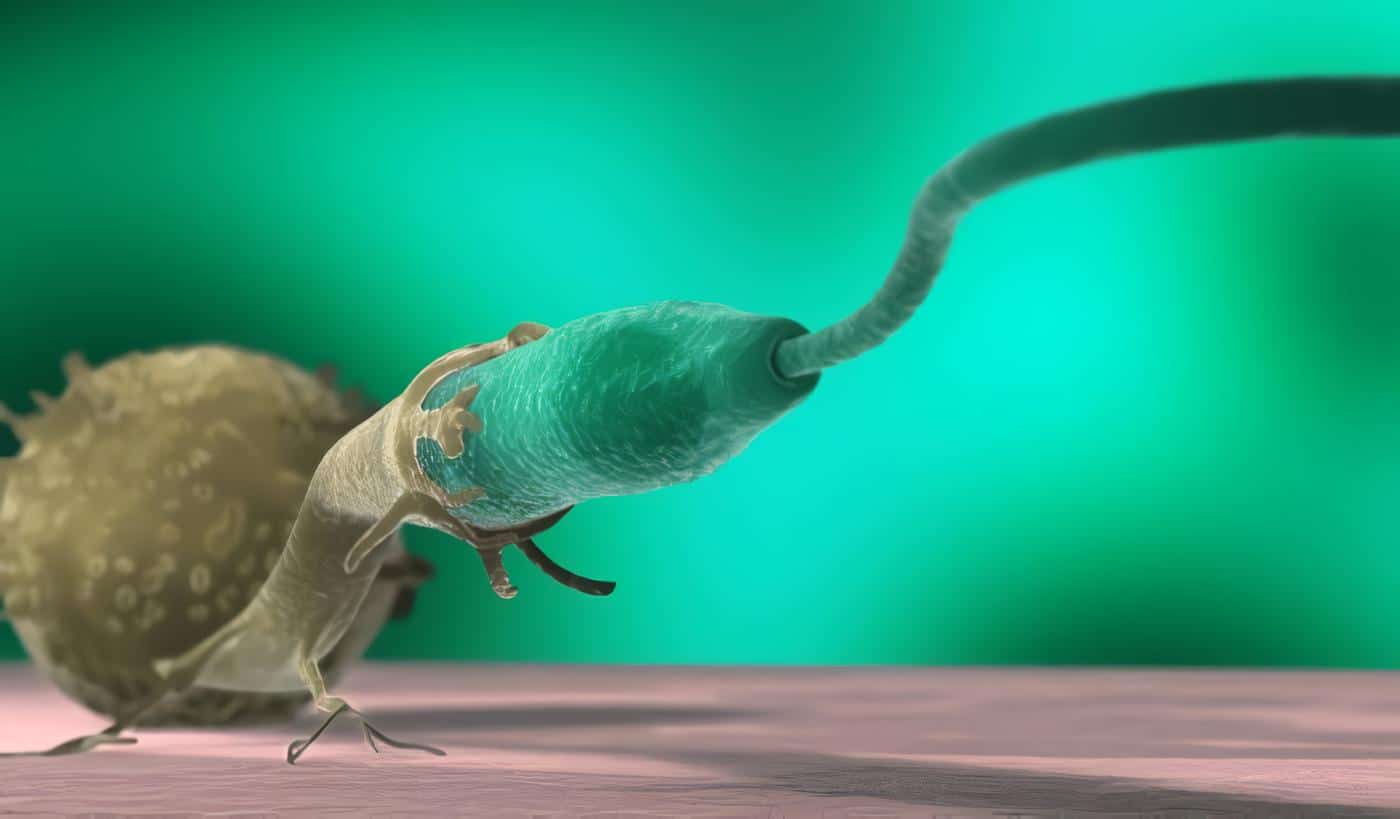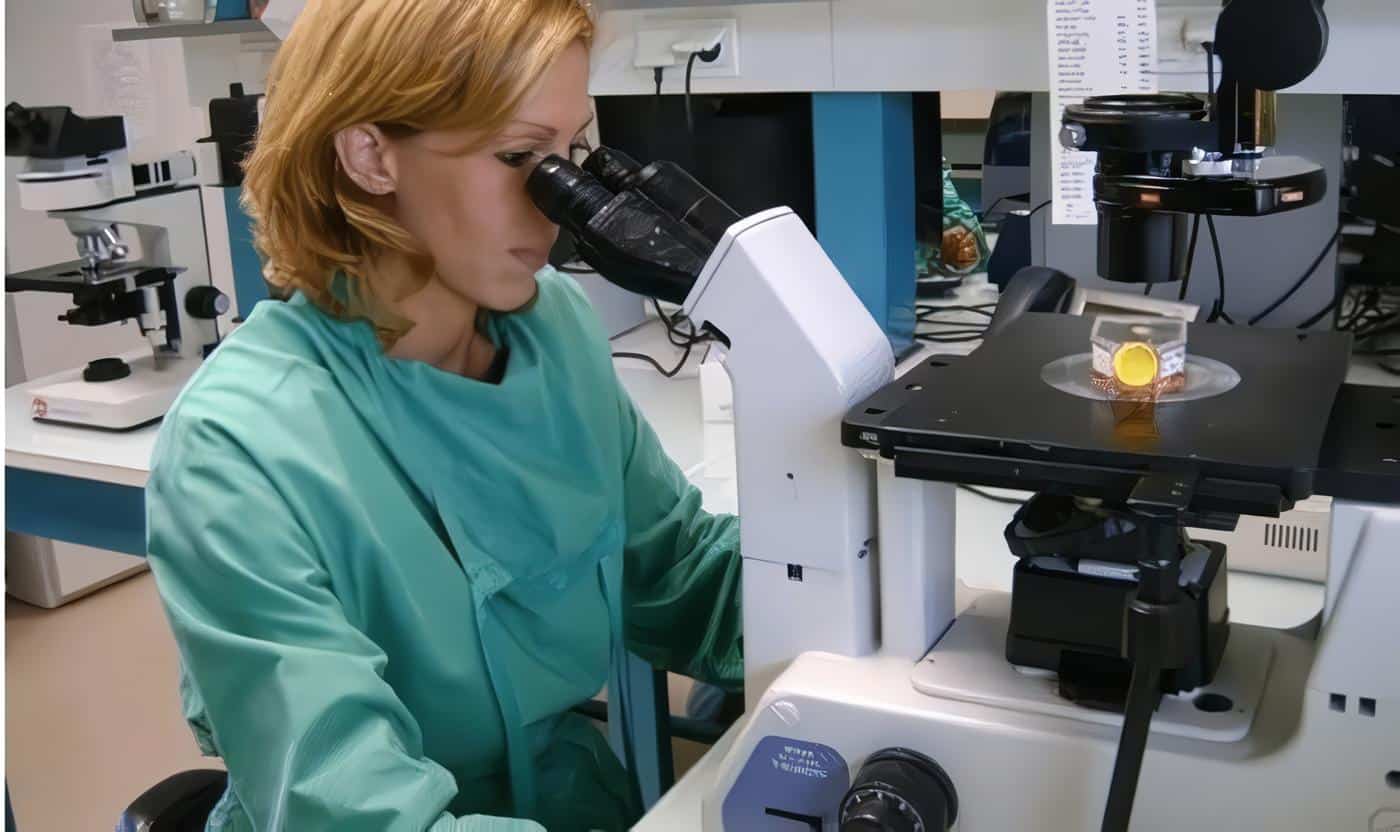1. Desjeux P. Leishmaniasis: current situation and new perspectives. Comp Immunol Microbio. Infect. Dis. 2004; 27: 305-18.
2. Ministerio de la Proteccion Social. Programa leishmaniasis. Oficina de ETV.
3. Bejarano EE, Uribe S, Rojas W, Velez D. Phlebotomine sand flies (Diptera: Psychodidae) associated with the appearance of urban Leishmaniasis in the city of Sincelejo. Mem Inst Oswaldo Cruz. 2002; 97: 645-7.
4. Pearson RD, Wheeler DA, Harrison LH, Kay HD. The immunobiology of leishmaniasis. Rev Infect Dis. 1983; 5: 907-927.
5. Miranda MC, Posso CX, Rojas CA. Manual de normas y procedimientos para la atención de la leishmaniasis en los municipios de Valle del Cauca. Secretaria Departamental de Salud, Gobernacion del Valle del Cauca y Centro Internacional de Entrenamiento e Investigaciones Medicas. Cali, Colombia. 2005.
6. Young DG, Morales A, Kreutzer RD, Alexander JB, Corredor A, Tesh RB, Ferro de Carrasquilla C, de Rodriguez C. Isolations of Leishmania braziliensis (Kinetoplastida: Trypanosomatidae) from cryopreserved Colombian sand flies (Diptera: Psychodidae). J Med Entomol. 1987; 5: 587-9.
7. Montoya J, Ferro C. Flebótomos (Diptera:Psychodidae) de Colombia. En Amat G, Andrade MG, Fernandez F. Insectos de Colombia VII. Academia Colombiana de Ciencias Exactas, Fisicas y Naturales. Coleccion Jorge Alvarez Lleras No. 13. 199; Bogota, Colombia.
8. CIPA Group. Science and Technology Cooperation of US Agency for International Development and the Scientific and Technical Cooperation of the French Ministry of Foreign Affairs. https://cipa.snv.jussieu.fr/indexl.
9. Wolff M, Galati EA. Description of Pintomyia limafalcaoae and Pintomyia antioquiensis, two new species of phlebotomine sand fly (Diptera, Psychodidae) from the Colombian Andes. Mem Inst Oswaldo Cruz. 2002; 97: 317-24.
10. Barreto M, Burbano ME, Young DG. Description of Lutzomyia (Trichophoromyia) pabloi n. sp. and the female of L. howardi (Diptera: Psychodidae) from Colombia. J Med Entomol. 2002; 39: 601-4.
11. Bejarano EE, Duque P, Velez ID. Taxonomy and distribution of the series pia of the Lutzomyia verrucarum group (Diptera: Psychodidae), with a description of Lutzomyia emberain sp. J Med Entomol. 2004; 41: 833-41.
12. Bejarano E, Sierra D, Velez ID. New findings on the geographic distribution of the L verrucarum group (Diptera: Psychodidae) in Colombia. Biomedica. 2003; 3: 341-50.
13. Relatoria Panel de Expertos. Universidad Nacional, Min Proteccion Social. Bogota septiembre 16 de 2005. Nivel de evidencia 5, grado de recomendación D
14. Corredor A., Gallego J, Tesh R. B, Morales A, Ferro C, Young D. G, Kreutzer R. D, Boshell J, Palau M. T, Caceres E, Pelaez D. Epidemiology of visceral leishmaniasis in Colombia. Am J Trop Med Hyg. 1989; 5: 480-486.
15. Travi B. L, Velez I. D, Brutus L, Segura I, Jaramillo C, Montoya J. 1990. Lutzomyia evansi, an alternate vector of Leishmania chagasi in a Colombian focus of visceral leishmaniasis. Trans R Soc Trop Med Hyg 1990; 84: 676-677.
16. Grimaldi G, Tesh R. B, Mc Mahon-Pratt D. A review of the geographic distribution and epidemiology of leishmaniasis in the New World. Am J Trop Med Hyg. 1989; 6: 687-725.
17. Corredor A., Kreutzer R. D., Tesh R. B, Boshell J, Palau M. T, Caceres E, Duque S, Pelaez D, Rodriguez G, Nichols S, Hernandez C. A, Morales A, Young D. G, Ferro C. Distribution and etiology of leishmaniasis in Colombia. Am J Trop Med Hyg 1990; 3: 206-214.
18. Travi BL, Montoya J, Solarte Y, Lozano L, Jaramillo C. Leishmaniasis in Colombia. I. Studies on the phlebotomine fauna associated with endemic foci in the Pacific Coast region. Am J Trop Med Hyg. 1988; 3: 261-6.
19. Alexander B, Ferro C, Young DG, Morales A, Tesh RB. Mem. Ecology of phlebotomine sand flies (Diptera: Psychodidae) in a focus of Leishmania (Viannia) braziliensis in northeastern Colombia. Inst Oswaldo Cruz. 1992.
20. Santamaria E, Castillo M, Cardenas R, Bello F, Ayala M, Ferrro C. Competencia vectorial de las especies del grupo verucatum (Diptera: Phychodidae) en un foco endemico de Leishmania braziliensis en Reventones, Cundinamarca. Biomedica. 1999; 19: 1115-26.
21. Kreutzer R. D, Corredor A, Grimaldi G, Grogl M, Rowton E, Young D. G, Morales A, Mc Mahon-Pratt D, Guzman H, Tesh R. B. Characterization of Leishmania colombiensis sp.n. (Kinetoplastida: Trypanosomatidae), a new parasite infecting humans, animals and phlebotomine sandflies in Colombia and Panama. Am J Trop Med Hyg. 1991; 6: 662-675.
22. Osorno-Mesa E. A., Morales A., Osorno F. de & Munoz de Hoyos P. Phlebotominae de Colombia (Diptera, Psychodidae). VI. Descripción de Lutzomyia longiflocosa n.sp. y Lutzomyia bifoliata n.sp. Boletim do Museu de Historia Natural da Universidade Federal de Minas Gerais. 1970; 6: 1-22.
23. Pardo R, Ferro C, Lozano G, Lozano C, Cabrear O, Davies C. Flebotomos vectores de leishmaniasis cutanea y sus determinantes ecologicos en la zona cafetera del Depto. del Huila. Memorias XXVI Congreso de la sociedad colombiana de entomologia. Bogota-Colombia, 1999; 147-63.
24. Cardenas R, Romo G, Santamaria E, Bello F, Ferro C. Lutzomya longiflocosa posible vector del foco de leishmaniasis cutanea en el municipio de planadas, zona cafetera del Depto. del Tolima. Biomedica 1999; 19: 239-44.
25. Alexander B, Usma MC, Cadena H, Quesada BL, Solarte Y, Roa W, Montoya J, Jaramillo C, Travi BL. Phlebotomine sandflies associated with a focus of cutaneous leishmaniasis in Valle del Cauca, Colombia. Med Vet Entomol. 1995; 9: 273-8.
26.Warburg A, Montoya-Lerma J, Jaramillo C, Cruz-Ruiz AL, Ostrovska K. Leishmaniasis vector potential of Lutzomyia spp. in Colombian coffee plantations. Med Vet Entomol. 199; 5: 9-16.
27. Montoya-Lerma J, Cadena H, Segura I, Travi BL. Association of Lutzomyia columbiana (Diptera: Psychodidae) with a leishmaniasis focus in Colombia due to species of the Leishmania mexicana complex. Mem Inst Oswaldo Cruz. 199; 94: 77-83.
28. Davies CR, Reithinger R, Campbell-Lendrum D, Feliciangeli D, Borges R, Rodriguez N. The epidemiology and control of leishmaniasis in Andean countries. Cad Saude Publica. 2000; 16: 925-50.
29. Travi BL, Adler GH, Lozano M, Cadena H, Montoya-Lerma J. Impact of habitat degradation on phlebotominae (Diptera: Psychodidae) of tropical dry forests in Northern Colombia. J Med Entomol. 2002; 39: 451-6.
30. Lopez Y, Osorio L, Alvarez G, Rojas J, Jimenez F, Gomez C, Ferro C. Sandfly Lutzomyia longipalpis in a cutaneous leishmaniasis focus in central Colombia. Mem Inst Oswaldo Cruz. 1996; 91: 415-9.
31. Desjeuxn P. The increase in risk factor for leishmaniasis worldwide.Trans R Soc Trop Med Hyg 200; 95: 239-43.
32. Velez ID. III simposio nacional de actualizacion e investigacion en ciencias biomedicas. Universidad de la sabana Bogota, Agoto 11-13 del 2005. Nivel de evidencia 5, grado de recomendacion D.
33. Barreto, A. C. et al. Leishmania mexicana in Proechimys iheringi denigratus Moojen (Rodentia, Echimyidae) in a region endemic for american cutaneous leishmaniasis. Rev Soc Bras Med Trop 1985; 18: 243-246.
34. Alexander B, Agudelo LA, Navarro F, Ruiz F, Molina J, Aguilera G, Quinonez ML. Phlebotomine sandflies and leishmaniasis risks in Colombian coffee plantations under two systems of cultivation. Med Vet Entomol. 2001; 15: 364-73.
35. Moreira ED Jr, de Souza VM, Sreenivasan M, Lopes NL, Barreto RB, de Carvalho LP. 2003. Peridomestic risk factors for canine leishmaniasis in urban dwellings: new findings from a prospective study in Brazil. Am J Trop Med Hyg. 69: 393.
36. Velez, I. Hendereich, E. Romano, Agudelo, S. Gender and Leishmaniasis in Colombia: a redefinition of existing concepts. April 1996. WHO-TDR. PECET
37. Alexander B, Lozano C, Barker DC, McCann SH, Adler GH. Detection of Leishmania (Viannia) braziliensis complex in wild mammals from Colombian coffee plantations by PCR and DNA hybridization. Acta Trop. 1998; 69: 41-50.
38. Reithinger R, Davies CR. Is the domestic dog (Canis familiaris) a reservoir host of American cutaneous leishmaniasis? A critical review of the current evidence. Am J Trop Med Hyg. 61: 530 – 541.
39. Montoya-Lerma J, Palacios R, Osorio L, Jaramillo C, Cadena H. Further evidence of humans as source of Leishmania viannia for sandflies. Mem Inst Oswaldo Cruz. 1998; 96: 735-6
40. Velez I.D 2001. La lesihmaniasis en Colombia: de la selva a la ciudad. Memorias XXVIII Congreso de la sociedad colombiana de entomologia, Pereira, Colombia. P 51-57 Nivel de evidencia 5, grado de recomendacion D.
41. Sandoval CM, Angulo VM., Gutierrez , Munoz G, Ferro C. Especies de Lutzomyia (Diptera:Psychodidae) posibles vectores de leishmaniasis en la ciudad de Bucaramanga, Santander, Colombia. Biomedica. 1998; 18: 161-168.
42. Pardo RH, Farieta S, Munstermann LE, Ferro C. Estudio preliminar de flebótomos de Villeta y Quebradanegra, Cundinamarca: sus implicaciones en salud pública. Biomedica 1996; 16: 293-302
43. Barreto M, Burbano ME, Barreto P. Lutzomyia sand flies (Diptera: Psychodidae) from middle and lower Putumayo Department, Colombia, with new records to the country. Mem Inst Oswaldo Cruz. 2000 Sep-Oct; 95: 633-9.
44. Agudelo LA, Uribe J, Sierra D, Ruiz F, Velez ID. Presence of American cutaneous Leishmaniasis vectors surrounding the city of Medellin, Colombia. Mem Inst Oswaldo Cruz. 2002; 97 (5): 641-2.
45. Travi BL, Velez ID, Brutus L, Segura I, Jaramillo C, Montoya J. Lutzomyia evansi, an alternate vector of Leishmania chagasi in a Colombian focus of visceral leishmaniasis. Trans R Soc Trop Med Hyg. 1990; 84: 676-7.
46. Corredor A, Gallego JF, Tesh RB, Pelaez D, Diaz A, Montilla M, Palau MT. Didelphis marsupialis, an apparent wild reservoir of Leishmania donovani chagasi in Colombia, South America. Trans R Soc Trop Med Hyg. 1989; 83: 195.
47. Travi BL, Jaramillo C, Montoya J, Segura I, Zea A, Goncalves A, Velez ID. Didelphis marsupialis, an important reservoir of Trypanosoma (Schizotrypanum) cruzi and Leishmania (Leishmania) chagasi in Colombia. Am J Trop Med Hyg. 1994; 50: 557-65.
48. Travi BL, Tabares CJ, Cadena H, Ferro C, Osorio Y. Canine visceral leishmaniasis in Colombia: relationship between clinical and parasitologic status and infectivity for sand flies. Am J Trop Med Hyg. 2001; 64: 119-24.
49. Travi BL, Ferro C, Cadena H, Montoya-Lerma J, Adler GH. Canine visceral leishmaniasis: dog infectivity to sand flies from non-endemic areas. Res Vet Sci. 2002; 72: 83-6.
50. Bejarano EE, Uribe S, Rojas W, Velez ID. Presence of Lutzomyia evansi, a vector of American visceral leishmaniasis, in an urban area of the Colombian Caribbean coast. Trans R Soc Trop Med Hyg. 2001; 95: 27-8.
51. Costa, N. Stewart, J. et. al. Asymptomatic Human Carriers of Leishmania Chagasi. Am. J. Trop. Med. And Hyg. 66. 2002; 334-337.
52. Costa, C. Gomez, M, et. Al. Competente of the human host as a reservoir for Leishmania chagasi. J Infect Dis 200; 182: 997-1000.
53. Rojas C.A. An ecosystem approach to human health and the prevention of cutaneous leishmaniasis in Tumaco, Colombia. Cad Saude Publica. 2001; 17: Suppl: 193-200.
54. Soto, J. et al. Efficacy of permethrin-impregnated uniforms in the prevention of malaria and leishmaniasis in colombian soldiers. Clin Infect Dis. 1995; 21: 599-602.
55. OMS. Division de lucha contra las enfermedades tropicales. 1996. Manual de lucha contra la leishmaniasis visceral.
56. Alexander B, Jaramillo C, Usma MC, Quesada BL, Cadena H, Roa W, Travi BL. An attempt to control Phlebotomine sand flies (Diptera: Psychodidae) by residual spraying with deltamethrin in a Colombian village. Mem Inst Oswaldo Cruz. 1995; 90: 421-4.
57. Grimaldi Jr G, and Tesh R. Leishmaniases of the New World: current concepts and implications for future research. Clin Microbiol Rev. 1993; 6: 230– 250.
58. Ashford, D. David, J. Freire, M. et. al. Studies on control of visceral Leishmaniasis: impact of dog control on canine and human visceral human leishamniasis in Jacobina, Bahia. Brazil. Am. J. Trop. Med. And Hyg. 59.1998; 53-57.
59. Oliveira S and Araujo, T. Avaliacao das acoees de controle da leishmaniose visceral (calazar) em uma area endemica do estado da Bahia, Brasil (1995- 2000). Cad Saude Publica.19, 2003; 1681-1690.
60. Alten, B. Caglar, S. Kayns, S. Simsek, F. Evaluation of protective efficacy of KOTAB impregnated bednets for cutaneous leishmaniasis control in Southeast Anatolia-Turkey.
61. Alexander B, Jaramillo C, Usma MC, Quesada BL, Cadena H, Roa W, Travi BL. An attempt to control Phlebotomine sand flies (Diptera: Psychodidae) by residual spraying with deltamethrin in a Colombian village. Mem Inst Oswaldo Cruz. 1995; 90: 421-4.
62. Kroeger, A. Villegas E, Avila, L. Insecticide impregnated curtainas to control domestic transmission of cutaneus leishmaniasis in Venezuela:cluster ramdomized trial. BMJ. 2002 12; 325: 810-3.
63. Corredor A., Rey M, Hernandez C, Parra M. Leishmaniasis tegumentaria americana. Boletin Epidemiologico Nacional (Colombia), 1986.
64. Calvopina M, Gomez EA, Uezato H, Kato H, Nonaka S, Hashiguchi Y. Atypical clinical variants in New World cutaneous leishmaniasis: disseminated, erysipeloid, and recidiva cutis due to Leishmania (V.) panamensis. Am J Trop Med Hyg. 2005. 73: 281-4.
65. Robinson RJ, Agudelo S, Muskus C, Alzate JF, Berberich C, Barker DC, Velez ID. The method used to sample ulcers influences the diagnosis of cutaneous leishmaniasis.Trans R Soc Trop Med Hyg. 2002. 96: S169-71. Nivel de evidencia 2B, grado de recomendacion B.
66. Ramirez JR, Agudelo S, Muskus C, Alzate JF, Berberich C, Barker D, Velez ID. Diagnosis of cutaneous leishmaniasis in Colombia: the sampling site within lesions influences the sensitivity of parasitologic diagnosis. J Clin Microbiol. 2000. 38: 3768-73. Nivel de evidencia 2B, grado recomendacion B.
67. Faber WR, Oskam L, van Gool T, Kroon NC, Knegt-Junk KJ, Hofwegen H, van der Wal AC, Kager PA. Value of diagnostic techniques for cutaneous leishmaniasis. J Am Acad Dermatol. 2003. 49: 70-4. Nivel de evidencia 2B, grado de recomendación B.
68.Weigle KA, Labrada LA, Lozano C, Santrich C, Barker DC. PCR-based diagnosis of acute and chronic cutaneous leishmaniasis caused by Leishmania (Viannia). J Clin Microbiol. 2002. 40: 601-6. Nivel de evidencia 1B, grado de recomendacion A.
69. Saldanha AC, Romero GA, Guerra C, Merchan-Hamann E, Macedo V de O. Comparative study between sodium stibogluconate BP 88 and meglumine antimoniate in cutaneous leishmaniasis treatment. II. Biochemical and cardiac toxicity. Rev Soc Bras Med Trop. 2000. 33: 383-8.
70. Chulay JD, Spencer HC, Mugambi M. Electrocardiographic changes during treatment of leishmaniasis with pentavalent antimony (sodium stibogluconate). Am J Trop Med Hyg.1985. 34: 702-9.
71. Hepburn NC, Nolan J, Fenn L, Herd RM, Neilson JM, Sutherland GR, Fox KA. Cardiac effects of sodium stibogluconate: myocardial, electrophysiological and biochemical studies. QJM. 1994. 87: 465-72.
72. Osorio LE, Castillo CM, Ochoa MT. Mucosal leishmaniasis due to Leishmania (Viannia) panamensis in Colombia: clinical characteristics. Am J Trop Med Hyg. 1998; 59: 49-52.
73. Santrich C, Segura I, Arias AL, Saravia NG. Mucosal disease caused by Leishmania braziliensis guyanensis. Am J Trop Med Hyg. 1990; 42: 51-5.
74. Saravia NG, Holguin AF, McMahon-Pratt D, D’Alessandro A .Mucocutaneous leishmaniasis in Colombia: Leishmania braziliensis subspecies diversity. Am J Trop Med Hyg. 1985 Jul; 34 (4): 714-20.
75. Rodriguez G. Sarmiento L. Hernandez C.A. Leishmaniasis mucosa y otras lesiones destructivas centrofaciales. Biomedica. 1994; 14: 215-229.
76. Badaro R, Jones TC, Carvalho EM, Sampaio D, Reed SG, Barral A, Teixeira R, Johnson WD Jr. New perspectives on a subclinical form of visceral leishmaniasis. J Infect Dis. 1986; 154: 1003-11.
77. Engwerda CR, Ato M, Kaye PM. Macrophages, pathology and parasite persistence in experimental visceral leishmaniasis. Trends Parasitol 2004; 20: 524-530.
78. Badaro, Jones TC, Loren R, Cerf BJ, Sampaio D, Carvalho EM, Rocha H, Teixeira R, Johnson WD Jr. A prospective study of visceral leishmaniasis in an endemic area of Brazil. J Infect Dis. 1986; 154: 639-49
79. Harms G, Zenk J, Martin S, Kokozidou M, Puschel W, Bienzle U, Seitz HM. Localized lymphadenopathy due to leishmanial infection. Infection. 2001; 29: 355-6.
80. Badaro R, Reed SG, Barral A, Orge G, Jones TC. Evaluation of the micro enzyme-linked immunosorbent assay (ELISA) for antibodies in American visceral leishmaniasis: antigen selection for detection of infection-specific responses. Am J Trop Med Hyg. 1986; 35: 72-8. Nivel de evidencia 2b, grado de recomendacion B.
81. Armijos RX, Weigel MM, Calvopina M, Mancheno M, Rodriguez R. Comparison of the effectiveness of two topical paromomycin treatments versus meglumine antimoniate for New World cutaneous leishmaniasis. Acta Trop. 2004; 91: 153-60. Nivel de evidencia 1b, grado de recomendacion D.
82. Shazad B, Abbaszadeh B, Khamesipour A. Comparison of topical paromomycin sulfate (twice/day) with intralesional meglumine antimoniate for the treatment of cutaneous leishmaniasis caused by L. major. Eur J Dermatol. 200515: 85-7. Nivel de evidencia 2b, grado de recomendacion B.
83. Soto JM, Toledo JT, Gutierrez P, Arboleda M, Nicholls RS, Padilla JR, Berman JD, English CK, Grogl M. Treatment of cutaneous leishmaniasis with a topical antileishmanial drug (WR279396): phase 2 pilot study. Am J Trop Med Hyg. 2002; 66: 147-51. Nivel de evidencia 1b, grado de recomendacion A.
84. Soto J, Fuya P, Herrera R, Berman J. Topical paromomycin/methylbenzethonium chloride plus parenteral meglumine antimonate as treatment for American cutaneous leishmaniasis: controlled study. Clin Infect Dis. 1998; 26: 56- 8. Nivel de evidencia 1b, grado de recomendacion A.
85. Montoya J, Palacios R, Osorio, l, Cadena H, Further evidence of human as source of Leishmania Viannia for sandflies. Mem. Inst. Osw. Cruz.1998; 93: 735-736.
86. Soto J, Grogl M, Berman J, Olliaro P. Limited efficacy of injectable aminosidine as single-agent therapy for Colombian cutaneous leishmaniasis. Trans.R Soc Trop Med Hyg. 1994; 88: 695-8. Nivel de evidencia 2b, grado de recomendación B.
87. Soto-Mancipe J, Grogl M, Berman JD. Evaluation of pentamidine for the treatment of cutaneous leishmaniasis in Colombia. Clin Infect Dis. 1993; 16: 417-25. Nivel de evidencia 2b, grado de recomendacion B.
88. Hendrickx EP, Agudelo SP, Munoz DL, Puerta JA,Velez ID. Lack of efficacy of mefloquine in the treatment of new world cutaneous leishmaniasis in Colombia. Am. J. Trop. Med. Hyg., 59 (6), 1998; 889-892. Nivel de evidencia 2b, grado de recomendacion B.
89. Singh S, Sivakumar R. Challenges and new discoveries in the treatment of leishmaniasis. J Infect Chemother 2004; 10: 307-15.
90. Soto J, Valda-Rodriquez L, Toledo J, Vera-Navarro L, Luz M, Monasterios- Torrico H, Vega J, Berman J. Comparison of generic to branded pentavalent antimony for treatment of new world cutaneous leishmaniasis. Am J Trop Med Hyg. 2004; 71: 577-81. Nivel de evidencia 1b, grado de recomendacion A.
91. Soto J, Toledo J, Vega J, Berman J. Short report: Efficacy of pentavalent antimony for treatment of colombian cutaneous leishmaniasis. Am J Trop Med Hyg. 2005; 72: 421-2. Nivel de evidencia 2b, grado de recomendacion B.
92. Soto J, Toledo J, Gutierrez P, Nicholls RS, Padilla J, Engel J, Fischer C, Voss A, Berman J. Treatment of American cutaneous leishmaniasis with miltefosine, an oral agent. Clin Infect Dis. 2001; 33: E57-61. Nivel de evidencia 2b, grado de recomendacion B.
93. Soto J, Arana BA, Toledo J, Rizzo N, Vega JC, Diaz A, Luz M, Gutierrez P, Arboleda M, Berman JD, Junge K, Engel J, Sindermann H. Miltefosine for new world cutaneous leishmaniasis. Clin Infect Dis. 2004; 38: 1266-72. Nivel de evidencia 1b, grado de recomendacion A.
94. Bhattacharya SK, Jha TK, Sundar S, Thakur CP, Engel J, Sindermann H, Junge K, Karbwang J, Bryceson AD, Berman JD. Efficacy and tolerability of miltefosine for childhood visceral leishmaniasis in India. Clin Infect Dis. 2004; 38: 217-221. Nivel de evidencia 2b, grado de recomendacion B.
95. Sundar S, Jha TK, Sindermann H, Junge K, Bachmann P, Berman J. Oral miltefosine treatment in children with mild to moderate Indian visceral leishmaniasis. diatr Infect Dis J. 2003; 22: 434-8. Nivel de evidencia 2b, grado de recomendacion B.
96. Yardley V, Croft SL, DE Doncker S, Dujardin JC, Koirala S, Rijal S, Miranda C, Llanos-Cuentas A, Chappuis F. The sensitivity of clinical isolates of leishmania from Peru and Nepal to miltefosine. Am J Trop Med Hyg. 2005; 73: 272-275.
97. Franke ED, Llanos-Cuentas A, Echevarria J, Cruz ME, Campos P, Tovar AA, Lucas CM, Berman JD. Efficacy of 28-day and 40-day regimens of sodium stibogluconate (Pentostam) in the treatment of mucosal leishmaniasis Am J Trop Med Hyg. 1994; 51: 77-82. Nivel de evidencia 2b, grado de recomendacion B.
98. Thakur CP, Sinha GP, Pandey AK et al. Do the disminishing efficacy and increasing toxicity of sodium stibogluconate in the treatment of visceral leishmaniasis in Bihar, India, justify its continued use as a first drug? An observational study of 80 cases. Am Trop Med Parasitol 1998; 30: 143-5.
99. Castello MT, Echanove E, Ridocci F, Esteban E, Atienza F et al. Torsade de pointes durante el tratamiento de la leishmaniasis con antimonio de meglumina. Rev Esp Cardiol 1999; 52: 533-535.
100. Soto J, Buffet P, Grogl M, Berman J. Successful treatment of Colombian cutaneous leishmaniasis with four injections of pentamidine. Am J Trop Med Hyg. 1994 Jan; 50 (1): 107-11. Nivel de evidencia 2b,l grado de recomendacion B.
101. Sereno D, Holzmuller P, Lemesre JL. Efficacy of second line drugs on antimonyl- resistant amastigotes of Leishmania infantum. Acta Trop. 2000; 74: 25-31.
102. Amato V, Amato J, Nicodemo A, Uip D, Amato-Neto V. Duarte M. Treatment of mucocutaneous leishmaniasis with pentamidine isothionate. Ann Dermatol Venereol. 1998; 125: 492-5.
Publicidad

